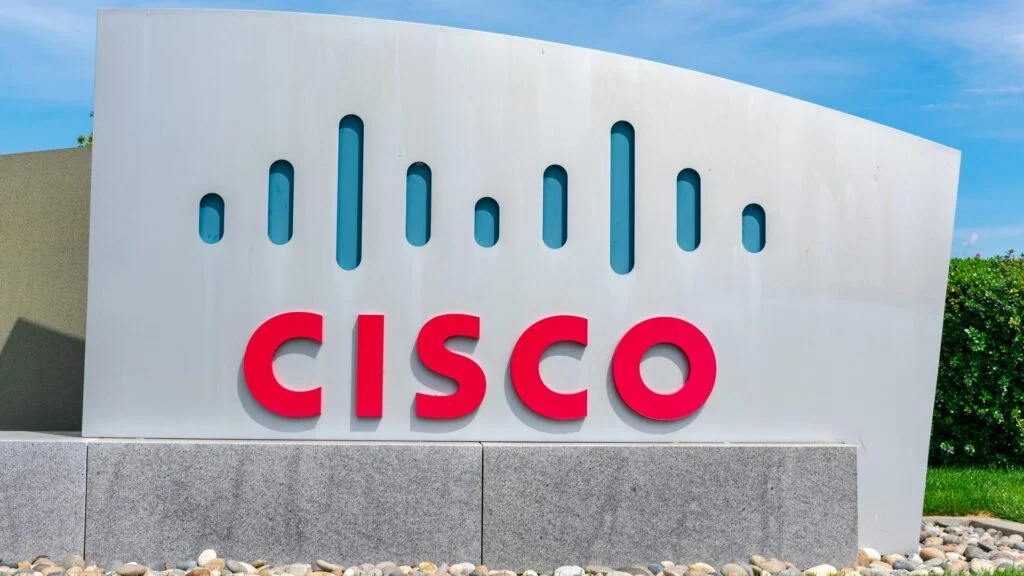Analyst(s): Ron Westfall
Publication Date: May 2, 2025
What is Covered in this Article:
- The new cloud-based security access capabilities of HPE Aruba Networking Central aim to accelerate enterprise-grade zero-trust security by treating users and devices as threats until verified and using policy capabilities to bolster protection.
- HPE Private Cloud Enterprise offers new differentiated threat-adaptive security that supports Digital Operations Resilience Act compliance (DORA) and disconnects from the public internet when network threats are detected.
- The unveiling of cybersecurity services from HPE aims to optimize the design and implementation of security strategies for sovereign clouds and AI.
The News: Hewlett-Packard Enterprise announced expansions of HPE Aruba Networking and HPE GreenLake cloud to help enterprises modernize secure connectivity and hybrid cloud operations by blending multi-layered and zero-trust approaches to protect against threats.
RSAC 2025: HPE Transforms Cloud Security with ZTNA and Private Cloud Boosts
Analyst Take: HPE Aruba Networking and HPE GreenLake cloud are expanding to help enterprises modernize secure connectivity and hybrid cloud operations by blending multi-layered and zero-trust approaches to protect against threats. HPE Aruba Networking introduced enhanced security features, including a more precise Policy Manager in Central NAC for detailed access policies, tighter integration with HPE OpsRamp for expanded third-party device monitoring, and new application profiling and risk assessment capabilities. Additionally, EdgeConnect SD-WAN offers new Secure Access Service Edge (SASE) and Adaptive Distributed Denial-of-Service (DDoS) defense features, while HPE Aruba Networking SSE provides high-availability mesh connectivity for reliable, resilient, and non-disruptive secure data routing across global points of presence.
How HPE Aruba Networking Security Upgrades Meet Topmost Enterprise Demands
From my viewpoint, the integration of SASE and Adaptive DDoS defense features is vital due to the evolving nature of enterprise networks and the increasing sophistication of cyber threats. SASE combines networking and security functions, such as secure web gateways and zero-trust network access, into a unified cloud-based architecture, enabling secure connectivity for distributed workforces and hybrid cloud environments. This is particularly important as organizations rely on cloud applications and remote work, which traditional WAN architectures struggle to secure efficiently. By embedding SASE capabilities, HPE’s EdgeConnect SD-WAN ensures consistent security policies and optimized performance across diverse locations, reducing latency and enhancing user experience while maintaining organization-wide protection against unauthorized access and data breaches.
Adaptive DDoS defense, powered by machine learning (ML), is equally vital as it addresses the growing frequency and complexity of DDoS attacks, which can undermine network availability and disrupt business operations. Unlike static defense mechanisms, adaptive DDoS protection dynamically adjusts to real-time threat patterns, mitigating attacks without manual intervention and minimizing downtime.
This capability is essential for enterprises to ensure continuous service availability, especially for critical applications hosted in private or hybrid clouds. By incorporating these advanced features, HPE’s EdgeConnect SD-WAN provides organizations with a resilient, agile, and secure networking foundation that aligns with modern digital transformation demands and safeguards against an ever-changing threat landscape.
HPE GreenLake Cloud Strengthens Enterprise Protections
HPE GreenLake has introduced new capabilities to strengthen enterprise cybersecurity, enhance operational resilience, simplify compliance, and reduce risks, helping businesses stay ahead of evolving threats and regulations. These advancements reflect HPE’s holistic security and data protection approach, incorporating solutions such as HPE Zerto Software for data-focused resilience and the HPE StoreOnce backup and recovery appliance.
Moreover, HPE Private Cloud Enterprise now features threat-adaptive security that acts as a “digital circuit breaker,” temporarily isolating critical systems from the public internet during network threats to safeguard data and operations, reconnecting securely once the threat is resolved. This capability is particularly relevant for financial sector enterprises navigating regulations like DORA.
Further enhancing security for regulated industries, HPE Private Cloud Enterprise now offers air-gapped cloud management, enabling on-premises cloud experiences without external network connectivity, delivered by HPE’s security-cleared personnel. This solution supports sovereign environments and private clouds, with future updates enabling cloud-native, Kubernetes-based workloads in air-gapped settings.
HPE also provides new Cybersecurity Services for sovereign cloud, leveraging experts to integrate security solutions into enterprise risk frameworks, alongside AI-focused cybersecurity services to ensure governance and protection against AI-enabled threats. The integration of OpsRamp and CrowdStrike further bolsters system performance and cyber resilience through unified observability and real-time threat detection.
Threat adaptive security is becoming integral to enterprise security because it enables organizations to dynamically respond to an ever-evolving cyberthreat landscape characterized by sophisticated, targeted attacks and zero-day vulnerabilities. Unlike static security measures, adaptive systems leverage real-time threat intelligence, machine learning, and behavioral analytics to detect, analyze, and mitigate risks proactively, minimizing the window of exposure. Integrating automation and orchestration allows these systems to swiftly adjust defenses, patch vulnerabilities, and isolate compromised assets, ensuring resilience against advanced persistent threats. This approach is critical as enterprises face increasing attack surfaces due to cloud adoption, work, hybrid, and IoT proliferation, demanding a flexible, intelligence-driven security posture to protect sensitive data and maintain business continuity.
HPE GreenLake Spotlights CISA and Post-Quantum Cryptography Credentials
On its one-year anniversary, HPE spotlights its commitment to the Cybersecurity and Infrastructure Security Agency (CISA) Secure by Design pledge, with significant strides in its edge-to-cloud security strategy. HPE GreenLake now incorporates over 2,200 security controls, using Zero Trust frameworks and aligning with the EU”s Digital Operational Resilience Act (DORA), CIS, CISA Secure by Design, and STIG standards.
HPE’s secure by design progress includes HPE Aruba Networking’s AI-driven network detection and response (NDR), ransomware protection through HPE Cyber Resilience Vault, and the HPE ProLiant Compute Gen12 portfolio featuring iLO 7. These Gen12 servers offer a silicon root of trust and nascent market support post-quantum cryptography, meeting FIPS 140-3 Level 3 certification for advanced cryptographic security.
From my perspective, HPE’s CISA Secure by Design pledge is critical to the security ecosystem because it fosters a proactive, industry-wide commitment to embedding security into the core of technology development, shifting the burden of cybersecurity from end-users to manufacturers and developers. By encouraging organizations to adopt secure-by-design principles, such as implementing Zero Trust frameworks, robust cryptographic standards, and resilience against emerging threats like ransomware and post-quantum risks, the pledge can help ensure products are inherently secure from the outset.
This collaborative approach, backed by CISA, aligns with global standards such as CIS and FIPS, reducing vulnerabilities, enhancing trust in digital infrastructure, and mitigating the growing complexity of cyber threats across diverse industries and ecosystems.HPE’s DORA support is important because it ensures financial entities comply with stringent EU cybersecurity and operational resilience requirements, enhancing the stability and security of critical financial systems against cyber threats.
Looking Ahead
Overall, data-driven AI applications are becoming more prevalent, obliging organizations to face increasingly complex threats across data storage, capture, and transmission points. HPE’s new security portfolio capabilities and solutions are positioned to provide robust protection, enabling organizations to reduce risks, counter attacks, and enhance organization-wide resilience.
What to Watch:
- Cloud-based security access will gain more support in organizational security strategies, as it is integral to providing scalable, flexible, and centralized solutions that protect data and applications across distributed environments in the era of swiftly evolving cyber threats.
- DORA is poised to achieve wider adoption among financial entities in the European Union due to its mandatory nature, comprehensive scope, and alignment with the evolving digital and cybersecurity landscape.
- HPE security design services are poised to gain market traction by leveraging its CISA Secure by Design pledge commitment, advanced Zero Trust frameworks, and solutions such as AI-driven network detection and post-quantum cryptography to meet the growing demand for agile cloud-based cybersecurity across diverse industries.
You can read the full press release at HPE’s website.
Disclosure: Futurum is a research and advisory firm that engages or has engaged in research, analysis, and advisory services with many technology companies, including those mentioned in this article. The author does not hold any equity positions with any company mentioned in this article.
Analysis and opinions expressed herein are specific to the analyst individually and data and other information that might have been provided for validation, not those of Futurum as a whole.
Other insights from Futurum:
HPE Q1 FY 2025: Server Boom Fuels Revenue Jump, But Margins Pressured
DOJ Blocks HPE’s $14 billion Juniper Deal – A Competitive Setback or Market Win?
Author Information
Ron is an experienced, customer-focused research expert and analyst, with over 20 years of experience in the digital and IT transformation markets, working with businesses to drive consistent revenue and sales growth.
Ron holds a Master of Arts in Public Policy from University of Nevada — Las Vegas and a Bachelor of Arts in political science/government from William and Mary.







